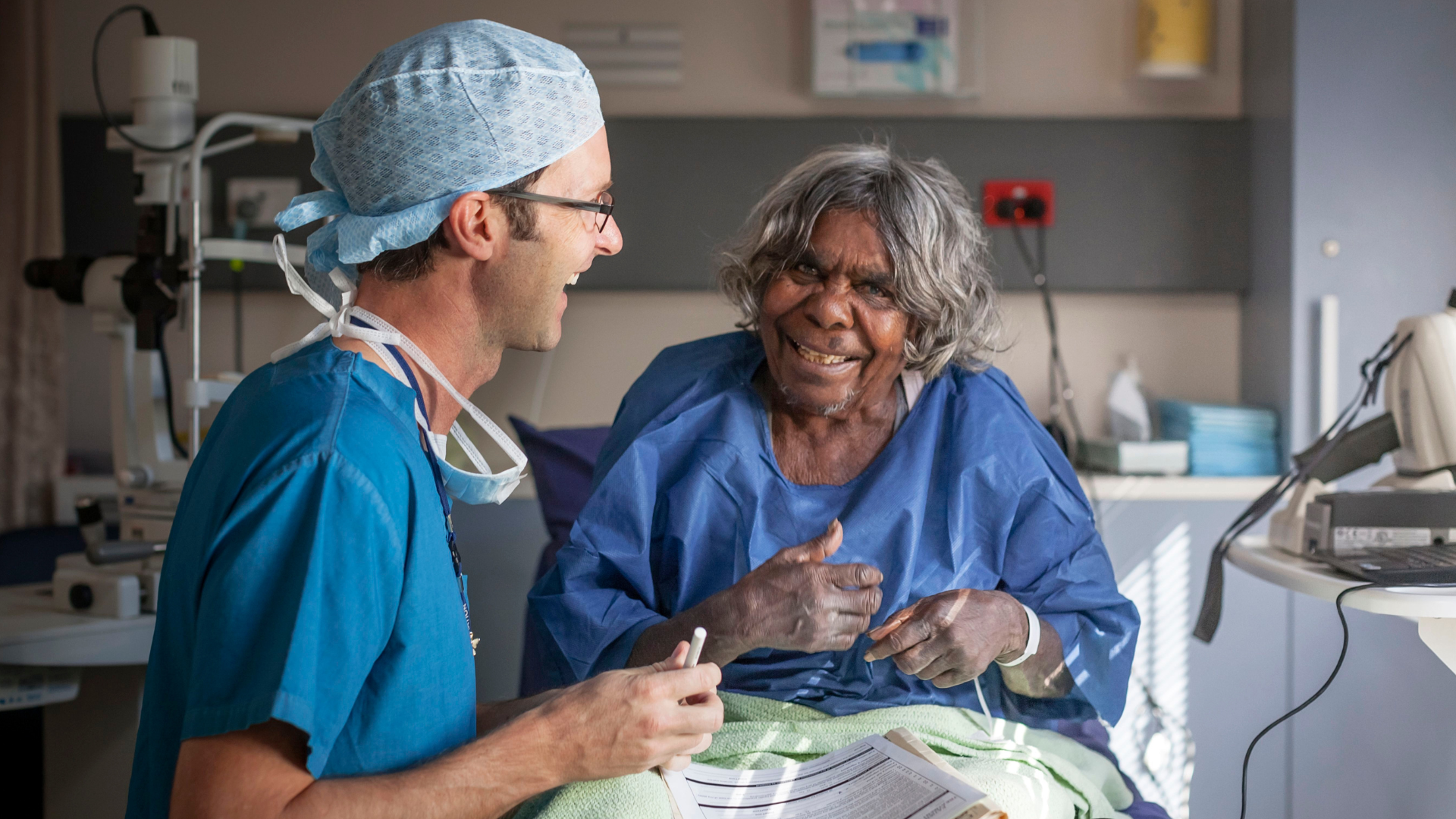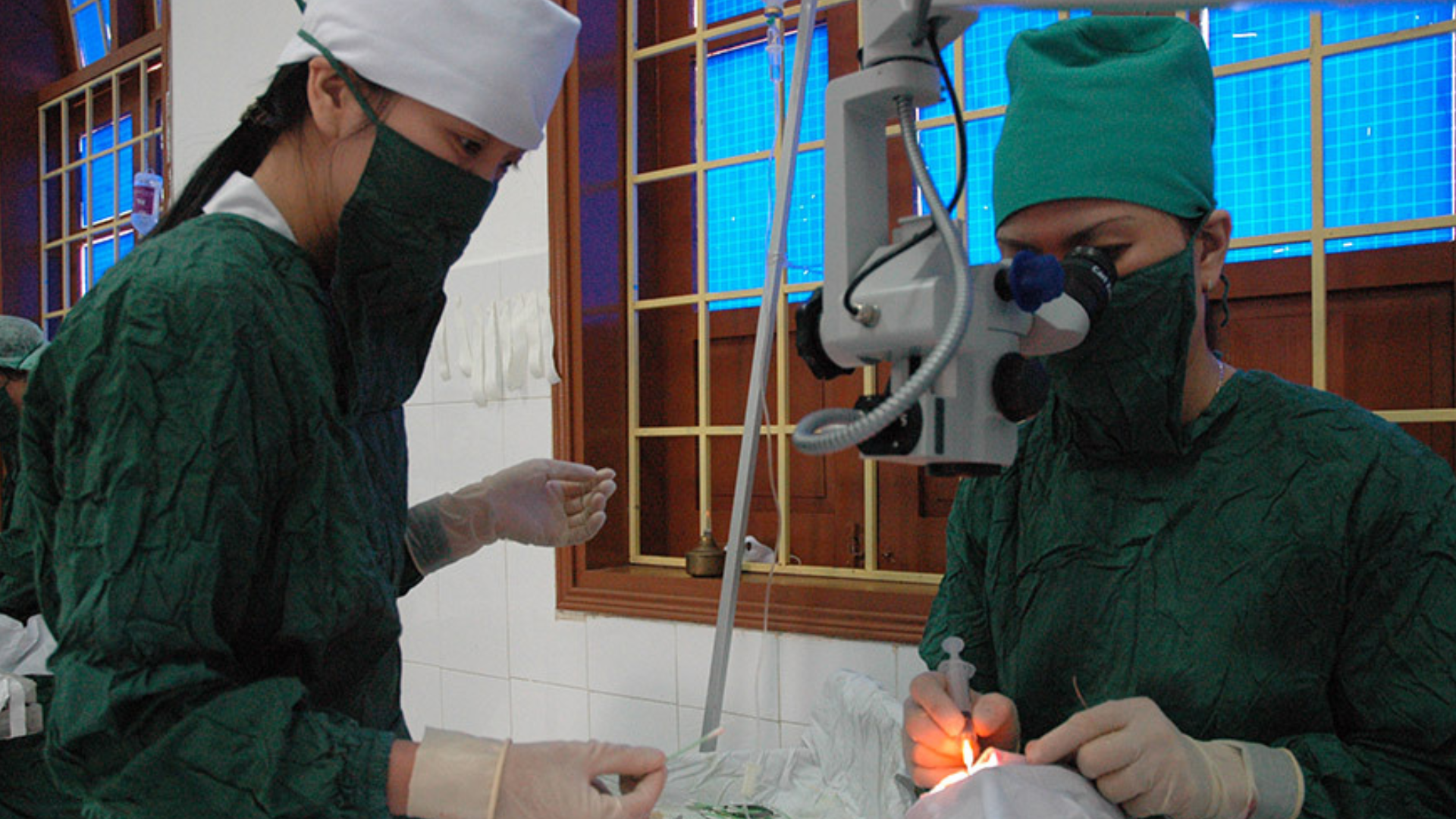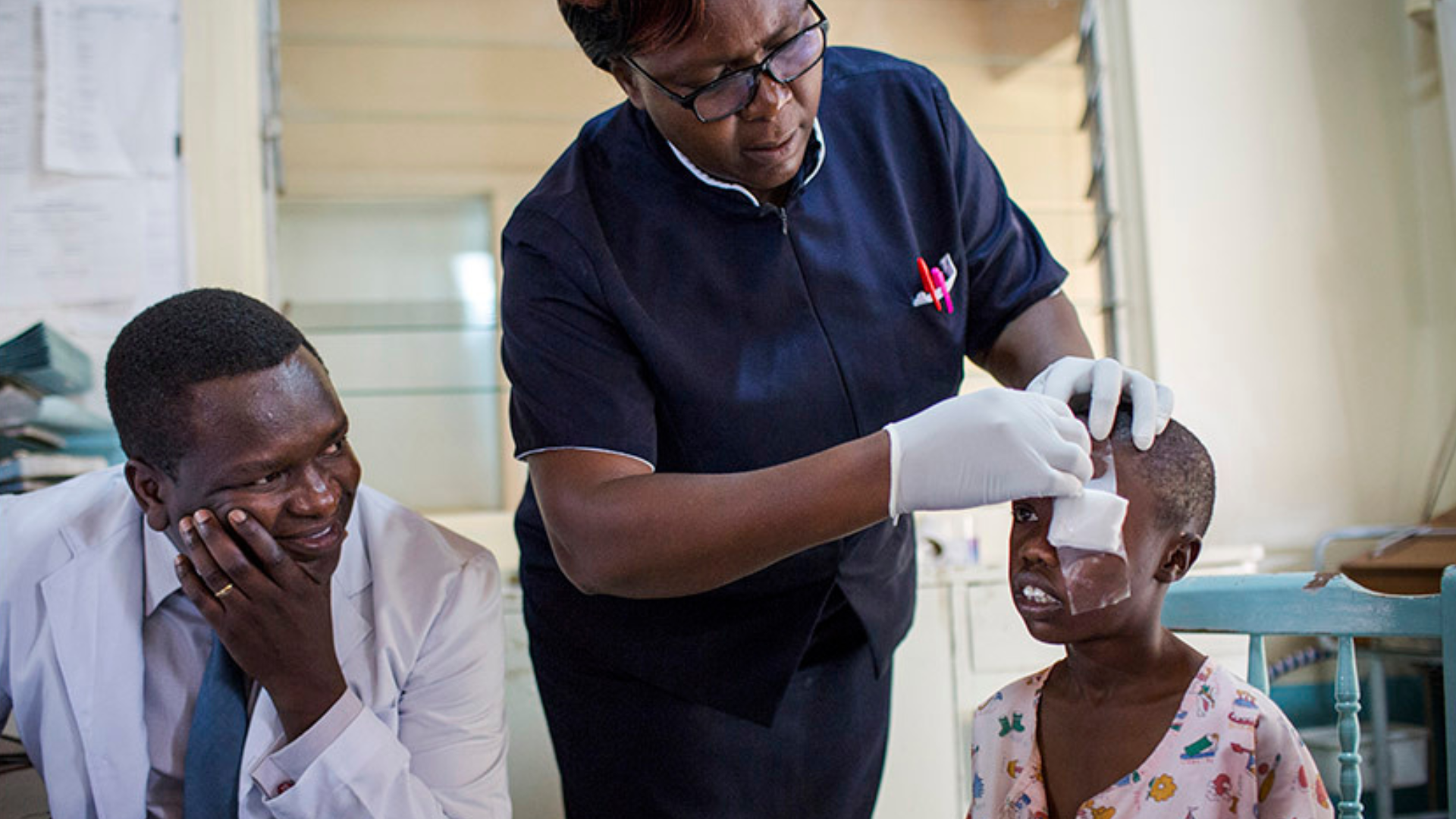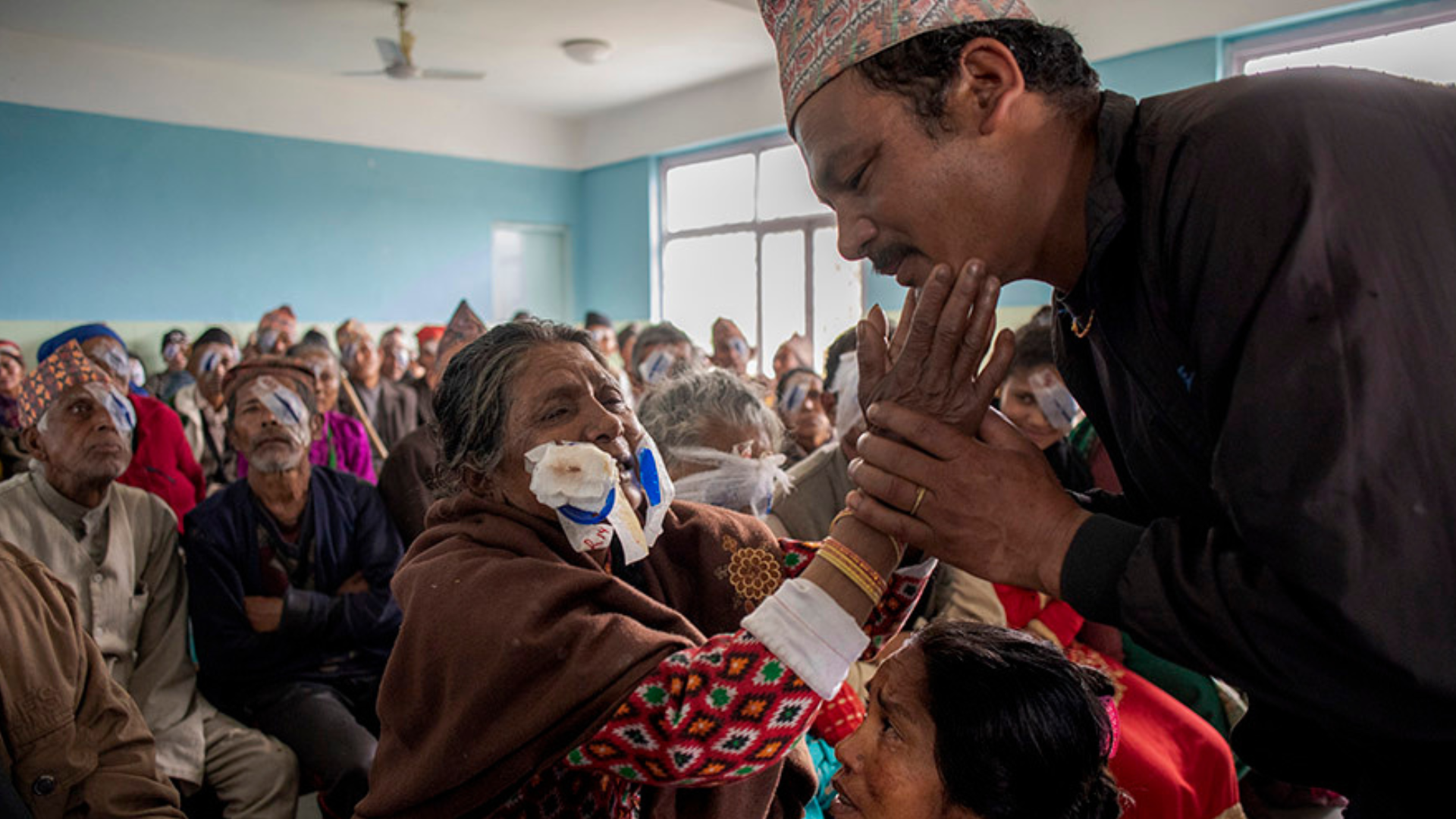Eye health
How to look after your eyes after cataract surgey

Do you have cataract surgery coming up? While it’s perfectly natural to be a little nervous, it may even seem daunting, don’t worry in silence. Speak to your ophthalmologist or operating surgeon. They will be able to ease your concerns and answer any questions pre-surgery and tell you how to care for your eyes post-surgery.
About 10 million cataract surgeries are performed worldwide each year. Cataract surgery is often pretty straightforward and quick, depending on your health and individual circumstances.
After the surgery, the patches get taken off your operated eye the very next day, and you should have your vision back within minutes of your eye adjusting to the light and environment.
There are a few things you can do to look after your eyes after your cataract surgery to ensure a speedy recovery and good vision.
About 10 million cataract surgeries are performed worldwide each year. Cataract surgery is often pretty straightforward and quick, depending on your health and individual circumstances.
After the surgery, the patches get taken off your operated eye the very next day, and you should have your vision back within minutes of your eye adjusting to the light and environment.
There are a few things you can do to look after your eyes after your cataract surgery to ensure a speedy recovery and good vision.
In a hurry?
Click on the link you're most interested in:
1. What happens during cataract surgery?
Cataract surgery is performed by an ophthalmologist, who removes the cloudy lens tissue that’s causing your blurred or unclear vision. The lens tissue is removed through a very small incision after local anaesthesia is administered.
The surgeon replaces the natural cataractous (cloudy) lens of your eye with an artificial implant called an intraocular lens (IOL). The power of the lens implant is calculated individually for each eye before surgery.

Photo credit: Michael Amendolia
2. How long does cataract surgery usually take?
Cataract surgery generally doesn’t take very long. It is usually completed within 20 to 30 minutes, if not quicker. However, each patient is different and underlying issues or health complications could mean the surgery takes a little longer – maybe up to an hour.
If you need cataract surgery in both eyes, they’ll be done on different days. Your ophthalmologist will most likely wait from a few days to as far as two weeks before operating on your second eye. They do this to allow your first eye to recover fully before the next procedure.
If you need cataract surgery in both eyes, they’ll be done on different days. Your ophthalmologist will most likely wait from a few days to as far as two weeks before operating on your second eye. They do this to allow your first eye to recover fully before the next procedure.

Photo credit: Nicola Bailey
3. How long does it typically take to recover from cataract surgery?
After cataract surgery, patients are usually able to see clearly within a few hours but the patch is usually removed a day after the surgery. The doctor will check your eye’s physical appearance and your ability to see both short and long distances.
You will need some medication and care for a few weeks until the eye is completely healed.
You will most likely feel a slight discomfort after cataract surgery but sometimes pain relief medication like paracetamol may be recommended or prescribed, if you need it.
Your eye care specialist will prescribe antibiotic eye drops for up to four to six weeks so that your eye doesn’t get infected. Be sure to use these eye drops exactly as prescribed.
You may also be prescribed anti-inflammatory eye drops so that if there is any internal inflammation, it can be reduced. You'll most likely have to apply the eye drops throughout the day at regular intervals for the first week of recovery. You may need the drops for a few weeks to a month, depending on the amount of inflammation there is.
While you are recovering from the surgery if you experience a lot of discomfort or there is a sudden change in your vision or excessive discharge or watering, contact your ophthalmologist or optometrist straightaway. This is very unlikely.
You will need some medication and care for a few weeks until the eye is completely healed.
You will most likely feel a slight discomfort after cataract surgery but sometimes pain relief medication like paracetamol may be recommended or prescribed, if you need it.
Your eye care specialist will prescribe antibiotic eye drops for up to four to six weeks so that your eye doesn’t get infected. Be sure to use these eye drops exactly as prescribed.
You may also be prescribed anti-inflammatory eye drops so that if there is any internal inflammation, it can be reduced. You'll most likely have to apply the eye drops throughout the day at regular intervals for the first week of recovery. You may need the drops for a few weeks to a month, depending on the amount of inflammation there is.
While you are recovering from the surgery if you experience a lot of discomfort or there is a sudden change in your vision or excessive discharge or watering, contact your ophthalmologist or optometrist straightaway. This is very unlikely.

Photo credit: Michael Amendolia
4. How can I minimise cataract surgery recovery time?
The eye heals quite quickly and you’ll be feeling great in no time, being able to resume normal activities as early as the day after your cataract surgery.
However, even if you’re feeling good, here are a few measures to take to avoid infections and injuries to your eye as it heals.
For a safe and speedy cataract surgery recovery, follow these tips:
However, even if you’re feeling good, here are a few measures to take to avoid infections and injuries to your eye as it heals.
For a safe and speedy cataract surgery recovery, follow these tips:
- Don’t bend over right after the surgery as this will put extra pressure on your eye. So avoid laced shoes.
- Don't drive right after your surgery, avoid it for a couple of days.
- Don't lift anything heavy for at least a few weeks.
- Don’t take part in any strenuous activities for the first few weeks. If you’re straining other parts of your body, chances are you’re straining your eyes too.
- Try not to move around too much or too suddenly after your surgery.
- Be careful when walking after surgery, so you don’t hurt yourself bumping into doors, etc.
- Avoid swimming or shared water bodies like spas during the first week to reduce the risk of infections.
- Don't go out in the wind for a few weeks after surgery as this will irritate your eyes.
- Stay away from dust, and dander for the first few weeks after surgery.
- Don't touch your eye or rub it, as tempting as it may be!
- Use protective glasses for few weeks to protect eye from trauma and foreign bodies, like dust
5. How can I look after my eyes after cataract surgery?
To give yourself the best cataract surgery recovery possible, you should follow your doctor's instructions on protecting your eye after surgery. Doctors will normally provide an instruction booklet or print-out for you to take home once your surgery is completed.

Photo credit: Michael Amendolia
Disclaimer: The content on this page is not intended to be medical advice. For specific medical advice, please contact your health professional.